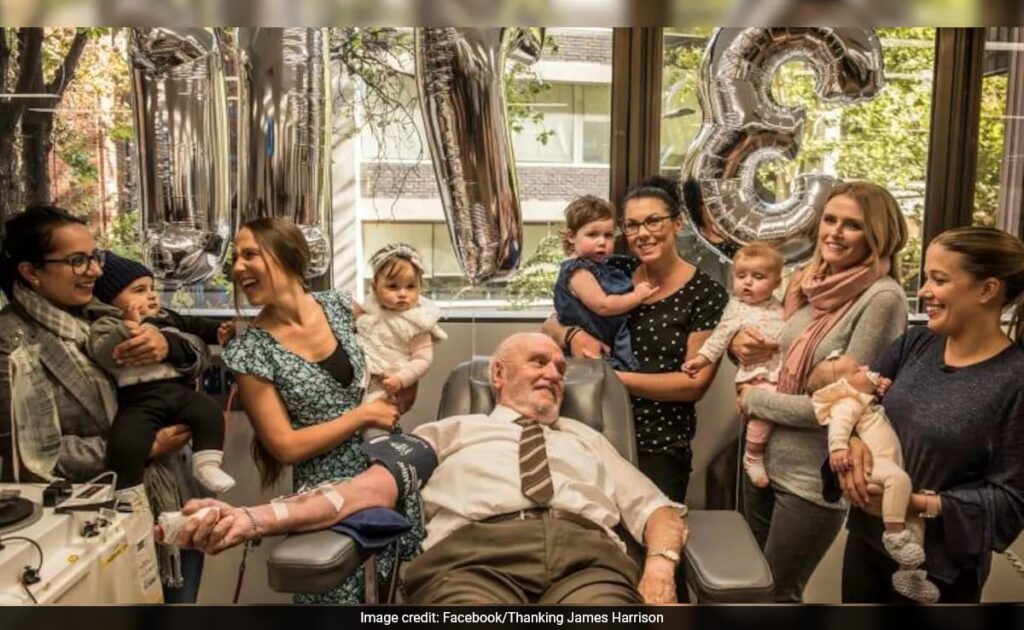
James Harrison, the Australian man whose blood donations saved the lives of over 2.4 million babies, has died at the age of 88. Mr Harrison, widely recognised as the ‘man with the golden arm,’ died peacefully in his sleep on February 17 at a nursing home in New South Wales, his family said.
His blood contained a rare antibody, Anti-D, which has been instrumental in protecting unborn babies from haemolytic disease of the foetus and newborn (HDFN), a life-threatening condition.
His contributions to medical science began when he pledged to become a donor after undergoing major chest surgery at the age of 14, during which he himself required multiple blood transfusions.
Starting at age 18, Mr Harrison donated plasma every two weeks for over six decades, continuing until he turned 81. His commitment earned him a world record in 2005 for the most blood plasma donations – a title he held until 2022.
Mr Harrison’s daughter, Tracey Mellowship, reflected on her father’s legacy and expressed pride in his lifelong dedication.
Ms Mellowship said her father was “very proud to have saved so many lives, without any cost or pain”.
“He always said it does not hurt, and the life you save could be your own,” she told BBC.
Ms Mellowship, along with two of his grandchildren, benefited from anti-D immunisations. “It made [James] happy to hear about the many families like ours, who existed because of his kindness,” she added.
Before anti-D treatments were introduced in the 1960s, half of all babies diagnosed with HDFN did not survive. Mr Harrison’s rare blood played a big role in changing that. His contributions helped many mothers each year, with fewer than 200 known anti-D donors across Australia.
Researchers at Australia’s Walter and Eliza Hall Institute of Medical Research, in collaboration with the Australian Red Cross Blood Service (Lifeblood), are working to replicate Mr Harrison’s antibodies in a lab. Their aim is to develop a synthetic version of anti-D, ensuring a stable and accessible treatment for pregnant women worldwide.
“Creating a new therapy has long been a ‘holy grail’,” said Lifeblood’s research director, David Irving, highlighting the challenges in securing a reliable pool of donors.














